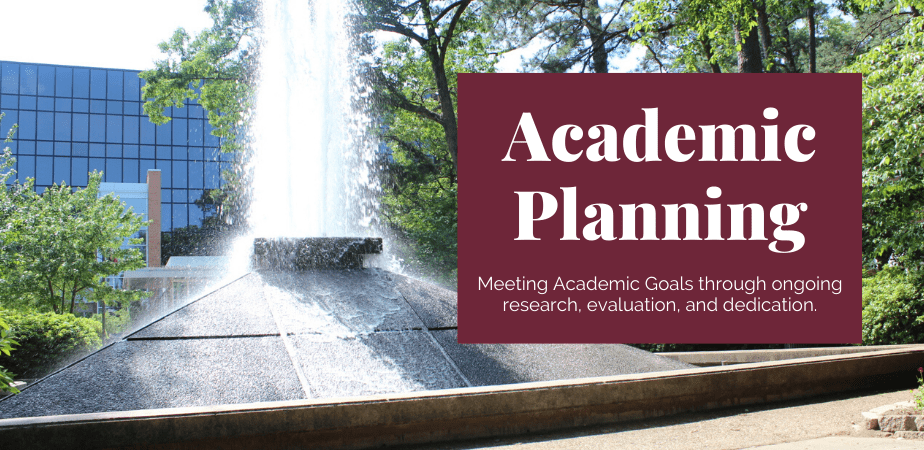Academic Planning 2020


In 2020 UA Little Rock is committed to developing a culture of integrated planning, with the Institutional Effectiveness Committee’s Strategic Resource Allocation Study serving as a baseline for this effort. In integrated planning, the Academic Plan, Enrollment Plan and Master Plan function as the pillars of the University Strategic Plan. The campus community is currently providing feedback on a Strategic Enrollment Management Plan draft. UA Little Rock is now positioned to move forward on a formal academic planning process.
UA Little Rock’s 2020 Academic Planning has the following objectives:
- Create a strategic resource allocation plan for Academic Affairs
- Provide a framework to advance our academic vision, mission, and values in the rapidly evolving landscapes of higher education and workforce needs
- Create an Academic Plan that will guide decision-making in Academic Affairs
- Coordinate and connect strategic plans of academic colleges with university strategic plan
- Shape the future of UA Little Rock as a vibrant urban university dedicated to transforming the lives of students and the community through engaged teaching and research
- Provide pro-active strategic priorities that will ensure that UA Little Rock graduates are prepared for work, life, and engaged citizenship
Although we are in the context of budget reductions, academic planning is critical to current and future decision-making. Having a participatory, transparent process is imperative to the success of academic planning and rebuilding our campus community. By enlisting internal and external stakeholders, the academic planning process will reveal selective strategies for how our curriculum, academic support, and engaged research will meet the needs of our students and the city.
In partnership with UA Little Rock, the Little Rock Regional Chamber of Commerce will be hosting two special advisory group sessions on the city’s vision, priorities, primary goals, and outcomes for UA Little Rock. Acknowledging that a vibrant city requires a vibrant university, the Chamber’s Executive Vice President, James Reddish, has volunteered to facilitate these groups. We anticipate that the feedback from community leaders will provide valuable insight that will help our university to shape our future. We will continue these annual Chamber advisory sessions in order to demonstrate our commitment to planning, accountability, and collaboration with the city. Together we can ensure the success of Little Rock and our university.
The Boyette Strategic Advising Firm will then lead internal focus groups consisting of representatives of faculty, staff, and students, as well as external focus groups consisting of representatives from the Alumni Board, the Board of Visitors, the Foundation Board, the Capital Campaign Steering Committee and key UA Little Rock supporters. All sessions will be led by a member of the Boyette team.
Following the completion of the focus groups, a campus-wide survey will be distributed to ensure that each member of the campus community has a voice in framing the future of our institution. Results from all focus groups and surveys will be provided to the campus.
In addition to other established ways for you to provide input (Improve UA Little Rock, Institutional Effectiveness Committee Feedback), we invite you (anonymous or identified) to submit your suggestions linked to Academic Planning via the “Contact Us” feature on the Office of the Provost Academic Planning webpage at ualr.edu/provost/academic-planning. We will also post updates on this webpage and on the Office of the Provost Blackboard shell regularly.
Thank you in advance for your support and participation as we work together to frame a positive future.
Sincerely,
Ann Bain, Provost
